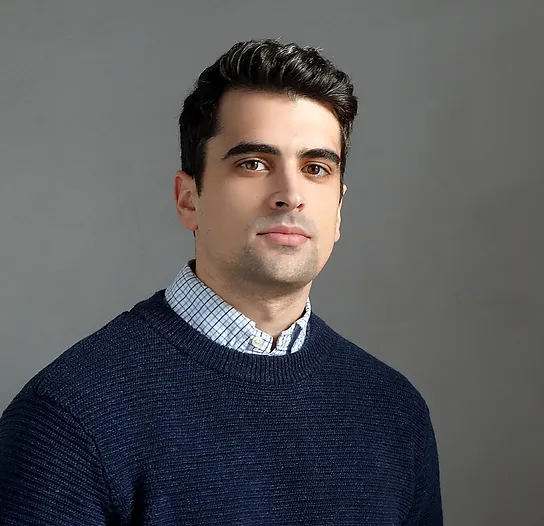Pierre is a leading college and graduate admissions consultant with extensive experience in education and entrepreneurship. His advice has been featured on Forbes.com, U.S. News, CNN Business, the Washington Post, ABC News, Business Insider, and more.

“Dear Human, I’m sixty percent banana.” This sentence began an essay that helped me get into Stanford. “Bonus points for anyone who kicks the ceiling” began one for my Yale supplement. Short and sweet sentences like this can be effective ways to draw in a reader at the beginning of an application essay, but done incorrectly they can also read as cliche or awkward. Even worse, they can confuse or irritate an admissions officer before they even learn what your essay is about. So what are the features of great first sentences, and how do you craft one to help your essay stand out?
Characteristics of Great First Sentences
Great first sentences can be either short, as above, or long. I began an MIT supplemental essay on something I love to do in my free time with “My fingers faster than a stenographer’s at Eminem’s trial, my lips buzzing like broken earbuds, my lungs straining like an 82-year old smoker’s on the top of Everest” (The essay was about playing trumpet, if you were wondering).
You should notice that this type of introduction to an essay has a very different feel than the examples in the first paragraph, which are much shorter. A CBS article titled “10 Great Opening Lines from Stanford Admissions Essays” cited a number of great examples, including: “I have old hands,” “I change my name each time I place an order at Starbucks,” and my personal favorite, “I stand on the riverbank surveying this rippled range like some riparian cowboy–instead of chaps, I wear vinyl, thigh-high waders and a lasso of measuring tape and twine is slung over my arm.”
There are the two major categories of stellar first sentences—descriptive long sentences that shove loads information at the reader to get their mind buzzing, and short, often mysterious or quirky statements that drive the reader to keep learning more. Middle length sentences can work, but they often fail to achieve either of these desired effects. In the CBS article linked above, only one of the ten sentences is between fifteen and twenty-five words, with five having ten or fewer words.
Another important quality of these is that they include odd details or interesting phrasing. Admissions officers have read many thousands of essays. To even approach impressing an admissions officer or get them excited while spending weeks wading through applications, your sentence should be something they’ve never seen before.
The Process
1. Determine the main topic of your essay
An effective first sentence or hook always points to the main topic of the essay. It would be confusing for the reader to get engaged from your first sentence in a topic that didn’t end up mattering much. Have a clear idea of what you want to discuss in your essay and what the point is. Often, it’s a good idea to come back to write the first sentence (perhaps the first paragraph) after you finish the rest of the essay. For example, for Stanford’s “Letter to your future roommate” essay, I knew I wanted to showcase my thoughtful approach to getting along with and understanding others. For my Yale supplement about a community I’m part of, I wanted to write about my martial arts school.
2. Identify a few interesting details about that topic
As mentioned above, it’s critical to have something unique. For my Stanford roommate essay, I remembered the funky internet facts about humans and other organisms having very similar DNA–for example, the 60 percent shared by bananas and humans–and found a way to fit this into the central idea. For my Yale essay, the weird detail was my way of motivating students–by offering them bonus points if they kicked the twelve-foot-high ceiling. This fit well into my discussion of what I learned about discipline and mentorship from being an instructor.
3. Write the rest of the essay, and then find a way to tie the conclusion back into your first sentence.
The “bookends” of your essay (the beginning and end) are critical for taking an essay from good to great. Having the conclusion reference the first sentence or the introduction gives the entire essay a cohesive, satisfying feel that stays with the reader even after they finish reading. I ended my Stanford roommate essay with the following:
“I am usually human, meaning my DNA is about 99.9 percent the same as yours. As humans, it’s expected that we’ll face a number of struggles adapting to the new circumstances we face at Stanford. But our species has repeatedly tackled much greater challenges with a tool I hope we share this coming year—friendship.
Sincerely,
A human much like you”
Walkthrough
“I joined high school Model United Nations as a freshman looking to learn a little bit about international issues and what’s being done to solve them; more than three years later, I know I’ve gotten so much more.”
This is an okay first sentence–just okay. It’s long, but not richly detailed. It provides little actual information, and at the same time spoils the essay. It’s clear from this that the rest is going to discuss the things the student learned in Model UN. In step one, we identify the topic–what participating in Model UN taught this student. For step two, we identify some unique details about Model UN–folded paper placards or a cheap wooden gavel maybe. Then we can draft a sentence about one of these:
“Why make a hammer out of wood?” I wondered before a loud smack of the gavel knocked me and my ill-fitting suit out of the hotel-conference-room chair, christening the start of my first Model UN conference.
Later, we can consider how this might fit into a last paragraph. Something along the lines of “Now I bang the gavel confidently each time I begin a club meeting or open a session of debate” might begin a strong conclusion summarizing how the student has changed.
Summary
Great first sentences are easy ways to wake up the admissions officer.
There are two types: your first sentence should either be short and quirky or long and detailed.
It should tie into your main topic in some way, and this should be the focus of the rest of the first paragraph.
A great first sentence guarantees a fantastic conclusion if you effectively reference it.
Our college admissions company can help you brainstorm and craft an outstanding personal essay that will help you stand out. Learn more today.




